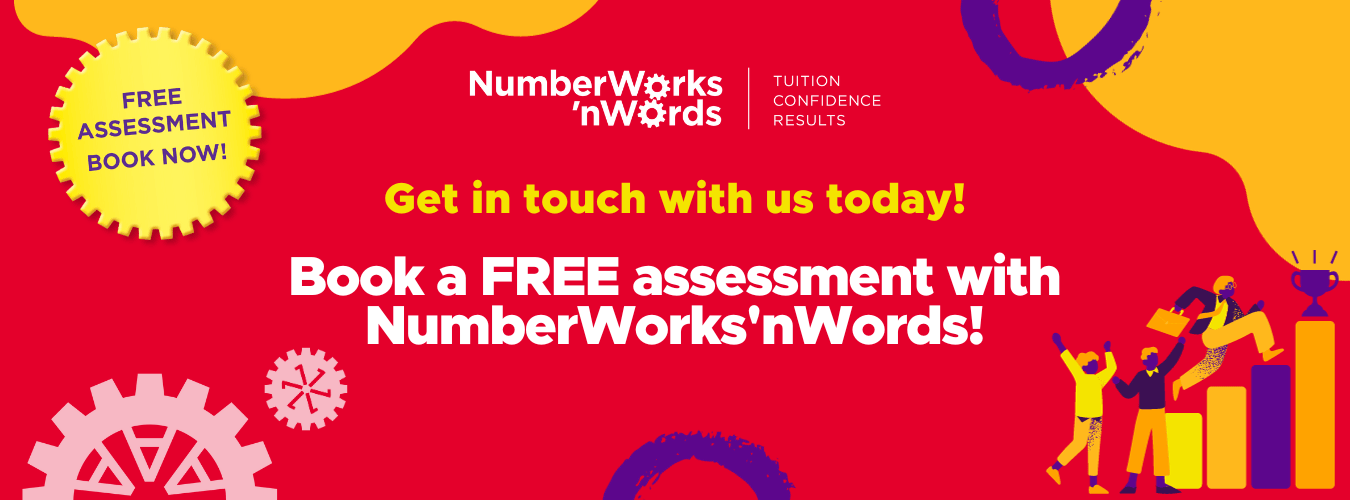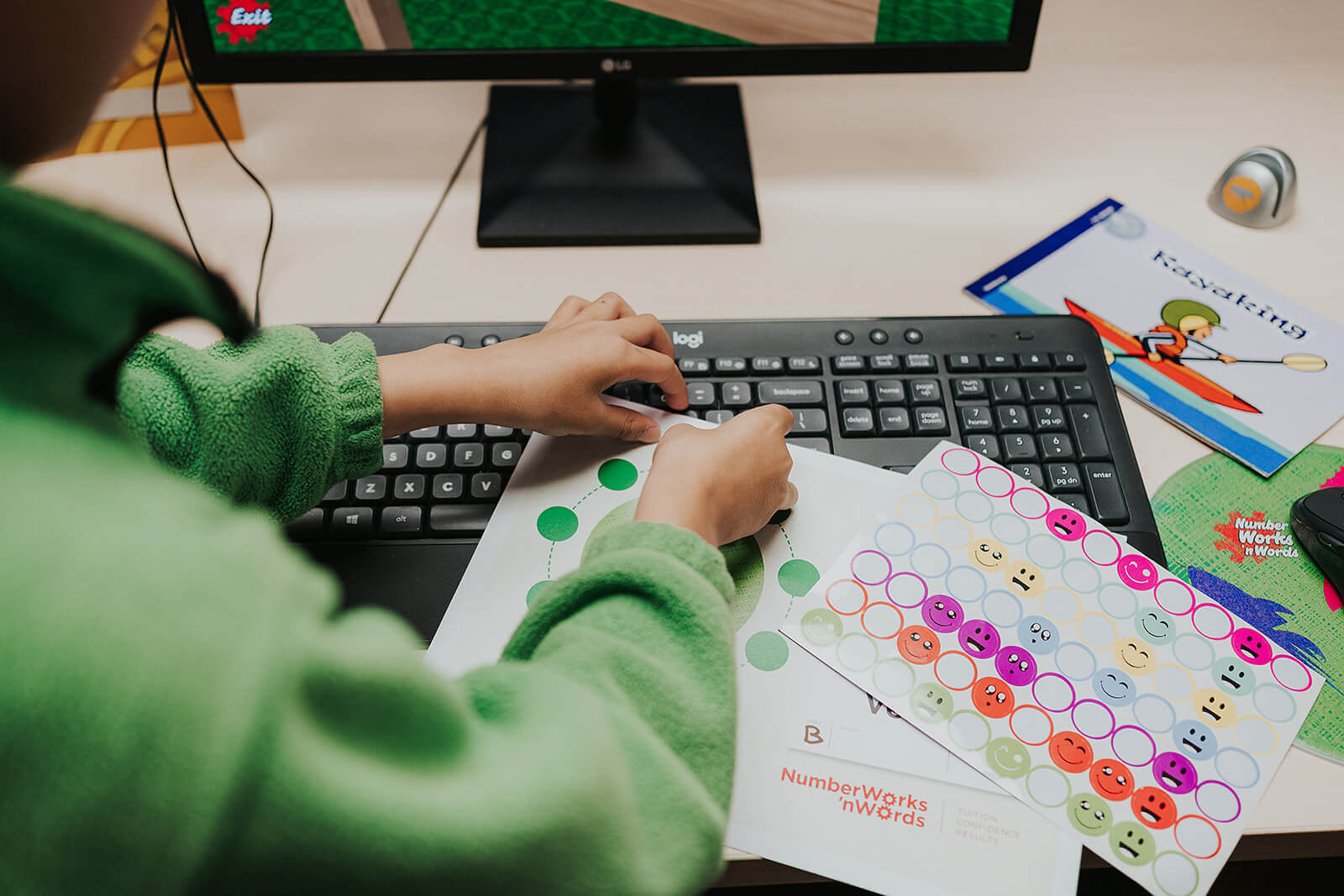End-of-Year Reflections
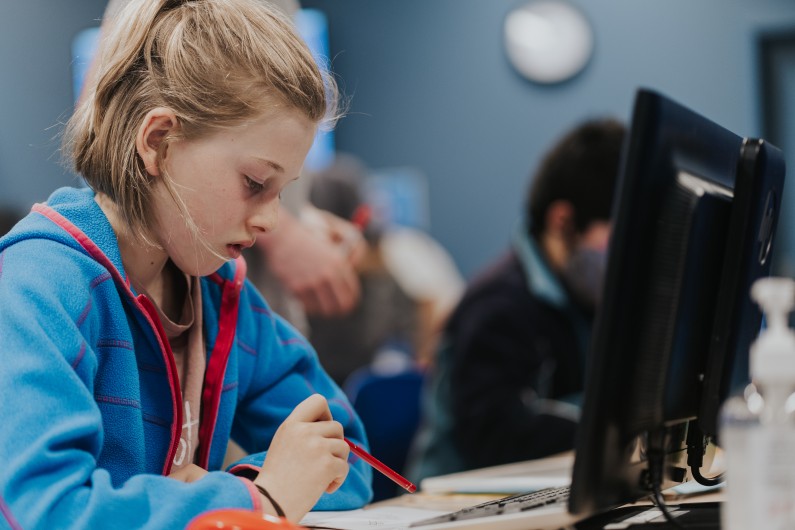
The close of the year marks a thrilling period for both kids and parents alike. Children eagerly anticipate the upcoming school holidays, eager to unwind, while parents welcome the reprieve from the early morning hustle. Despite the anticipation of these moments, there's a temptation to charge ahead into the freedom of the break without a backward glance.
Pausing for a moment to reflect holds significant value, allowing contemplation on your child's growth, academic strides, and accomplishments, as well as their burgeoning interests. This blog delves into the advantages of such introspection, offering insights into the benefits and providing suggestions on how you can guide your child in reflecting on the past year.
Recognise and Celebrate Accomplishments
It's common to get caught up in reflecting solely on areas where our children can improve. Yet, end-of-year reflections present an opportunity to also celebrate our children's efforts, hard work, and achievements. Instead of concentrating solely on weaknesses, take a moment to acknowledge the successes, positive changes, accomplishments, and goals your child has reached over the past year.
Whether the successes are significant or small, use the end-of-year reflections to recognise and celebrate every aspect of your child's achievements.
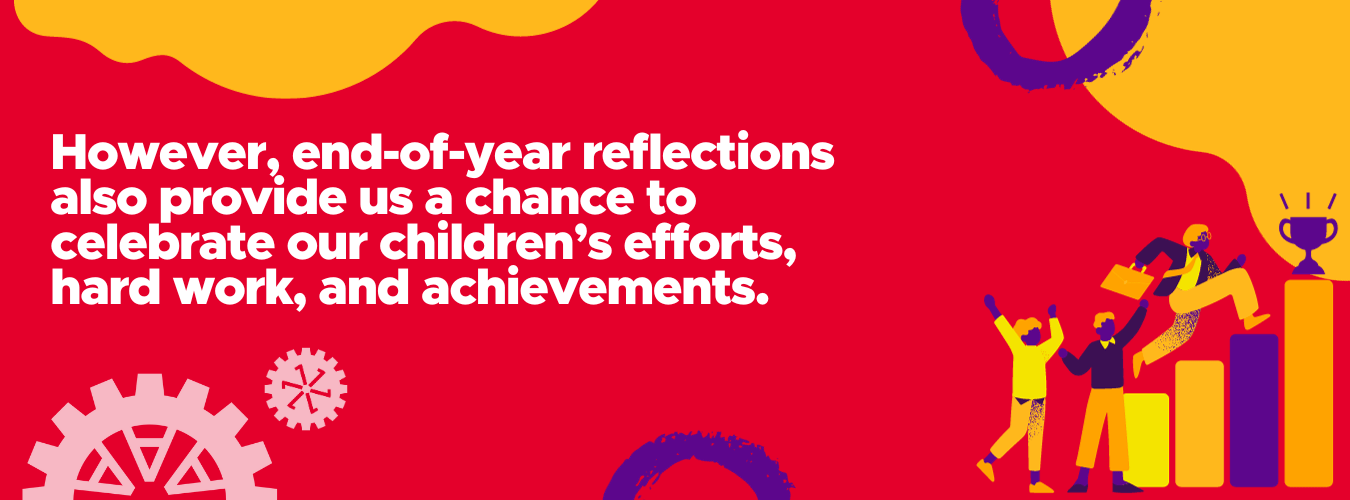
Revisit and Evaluate Goals
Engaging in end-of-year reflections provides an excellent opportunity to assist your child in evaluating the goals they set throughout the year. It's essential to recognise that not all goals may have been achieved, potentially due to their size or level of difficulty.
By revisiting and reflecting on past lessons and previously set goals, we can openly discuss why certain goals were not reached. This conversation allows us to explore how they can improve in the future and what supportive steps can be taken. Additionally, take advantage of the concept of reflecting one year later by collaboratively creating an action plan with your child. This plan can involve setting new goals or challenges for the upcoming year and fostering a proactive approach to personal growth and development.
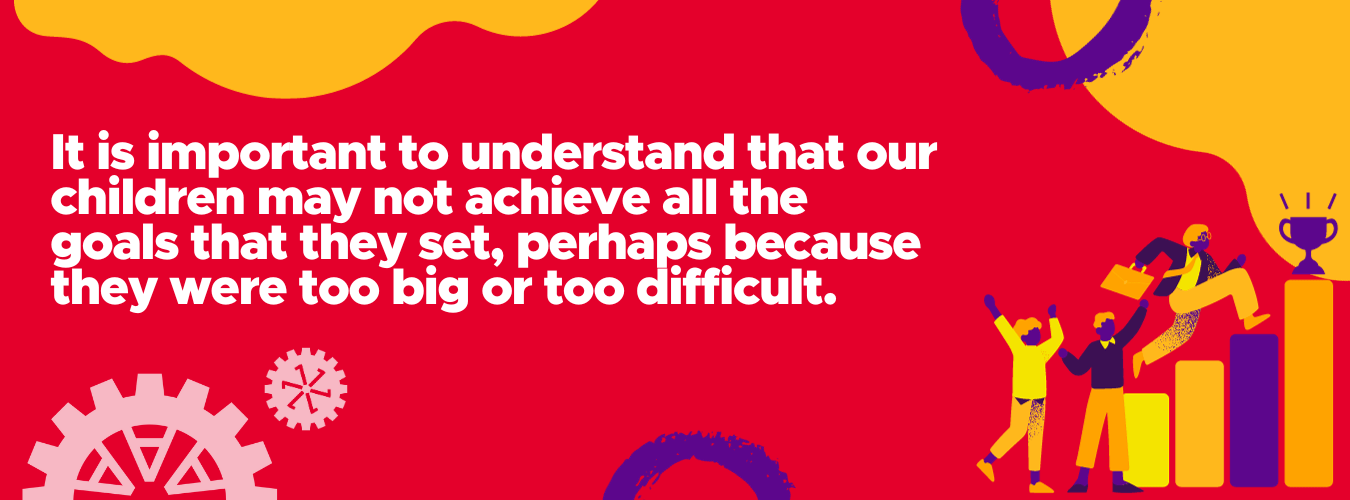
Develop Skills
Promoting end-of-year reflections is a crucial practice for children, fostering essential learning skills that extend well beyond their academic years. The act of reflection equips children to become critical thinkers, enabling them to gain a better understanding of themselves, learn from experiences, discern their preferences, and enhance their skill set.
As the year draws to a close, encouraging children to engage in reflective exercises becomes particularly valuable. This practice strengthens skills such as memory recall, effective questioning, investigative thinking, articulation, and thoughtful consideration of the past year's experiences.
Reflection is a competency with far-reaching benefits for children, applicable not only in their academic pursuits but also in their future careers and personal lives. Cultivating this skill assists children in making a positive transition into school holidays, offering a glimpse into the past year and preparing them for the challenges and opportunities that lie ahead.
Mastering the art of reflection at an early age lays the groundwork for children to evolve into critical thinkers capable of learning from both their successes and mistakes. This competency proves invaluable not only in academic settings but also in navigating the complexities of life.
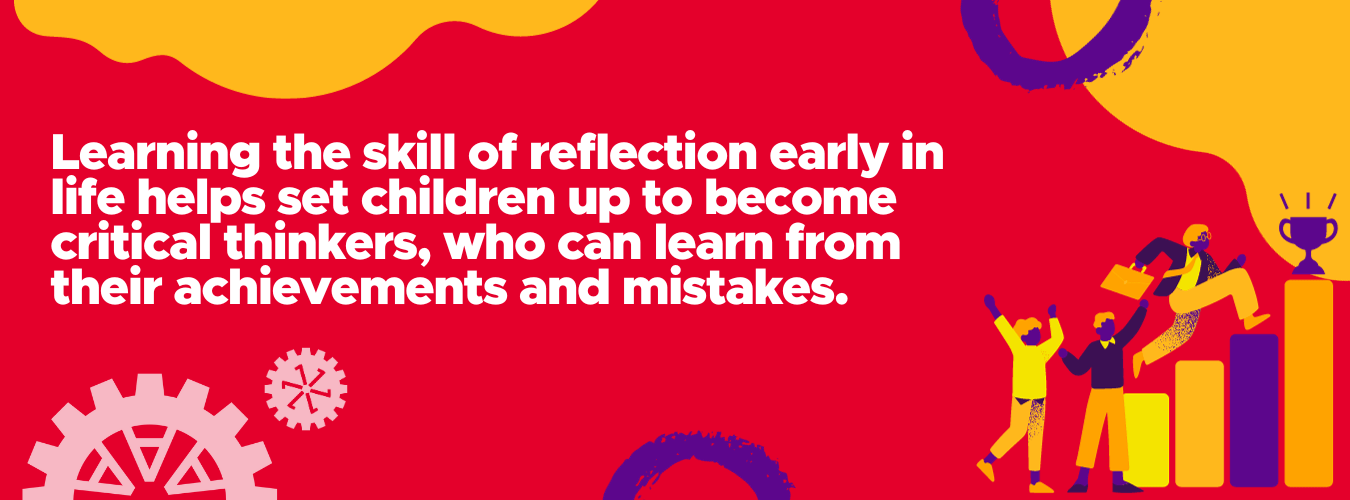
Self-Awareness
Reflection plays a pivotal role in nurturing emotional intelligence. Engaging in reflective practices empowers children to gain a deeper understanding of themselves, facilitating the discovery of their preferences and harmonisation of their strengths and weaknesses. It is crucial to guide and support children in developing robust reflection skills.
This mentoring process aids children in forming a solid sense of self and comprehending who they are. Through self-reflection, children can ponder on what brings them joy and identify their interests. This introspective exercise might unveil a passion for subjects like math, English, computing, or art, and their success in these areas can propel them toward achieving excellence in the areas they discover a passion for.
Understanding Others
In addition to fostering self-awareness in children, reflection serves as a valuable tool for recognising and understanding others. When children reflect on their interactions with friends, family, and teachers, it enables them to articulate and comprehend the dynamics of their relationships and what motivates those around them.
Furthermore, reflecting on feedback received from parents, friends, and teachers aids children in processing information, ideas, and advice. This reflective practice enhances their understanding of their reactions to feedback, praise, and criticism. Dedication to reflecting on both positive and negative interactions and experiences becomes a catalyst for growth in children.
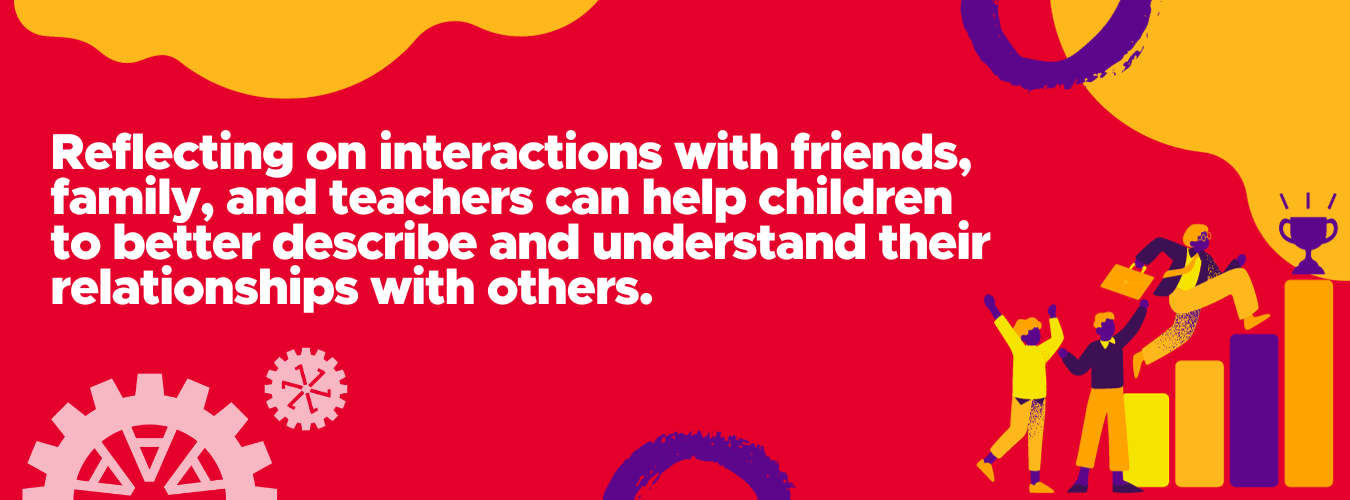
Personal Development
Significant personal growth often arises from adversity, challenges, or difficult experiences that compel us to surpass our existing limitations. When children face challenges—whether it's grappling with a math concept, encountering test failure, losing a friend, or making a mistake—it becomes crucial to encourage them to view these situations as opportunities for growth.
Reflection stands out as a vital tool in nurturing this growth. Guide your child in contemplating the unfolding of events, understanding what went wrong, and discerning the valuable lessons embedded in their experiences to pave the way for improvement in the future. This reflective process can take an informal turn, with supportive questioning that encourages vulnerability, or it may adopt a more structured approach involving writing prompts to capture their thoughts and feelings.
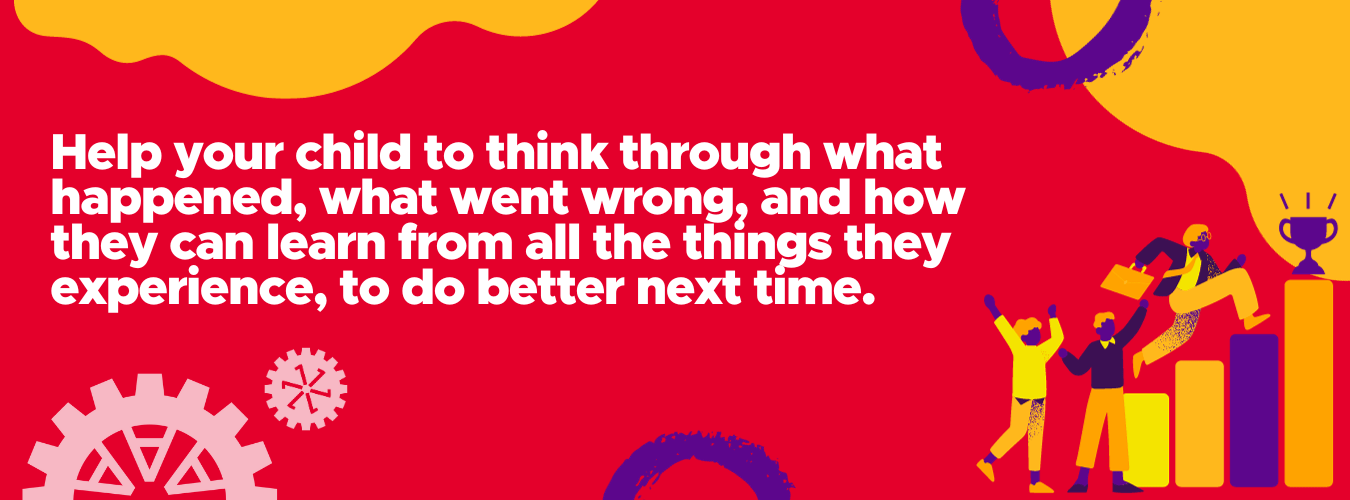
Zero in on Weaknesses
Engaging in end-of-year reflections proves to be a constructive approach to addressing your child's weaknesses, particularly in academic performance, and initiating discussions about future steps to help them overcome challenges. This process provides children with a platform to candidly share their struggles throughout the year, highlighting subjects that they found challenging or in need of extra support.
Observing lower grades in subjects like English or math might prompt discussions about the potential benefits of enrolling in after-school tutoring, such as programs offered by NumberWorks'nWords, for the upcoming year. Utilise this reflective period as an opportunity to pinpoint your child's weaknesses and provide guidance and additional support to prepare them for the challenges of the next academic year.
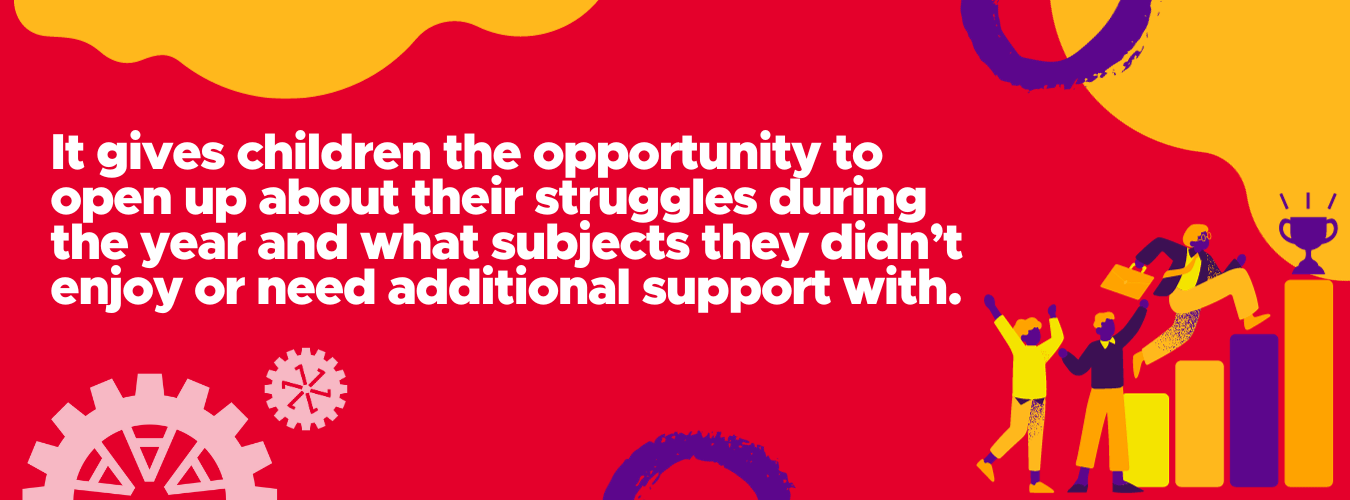
Building Confidence
By gaining a better understanding of both themselves and others and prioritising personal growth, children naturally cultivate confidence. Reflection becomes a powerful tool in this process, enabling children to construct a secure and confident knowledge base, and fostering a strong sense of self. This self-assurance empowers them to confront new challenges, learn from mistakes, and embrace new experiences.
Guide your children in establishing a routine that incorporates reflection and gratitude. This habitual practice not only hones their contemplative skills but also equips them to navigate life's highs and lows with resilience and confidence, preparing them for success in future challenges.
Reflection emerges as a key driver of personal growth and development. Through the habit of reflection, children learn to recognise and appreciate their strengths, make choices aligned with their interests and values, and identify areas for improvement. This practice becomes instrumental in helping children focus on developing themselves in these areas, contributing to their overall growth.
Our proven approach to maths and English tutoring helps children develop foundational skills and more knowledge and focuses on closing learning gaps. If you would like to learn more, contact your local centre or book a free assessment!
